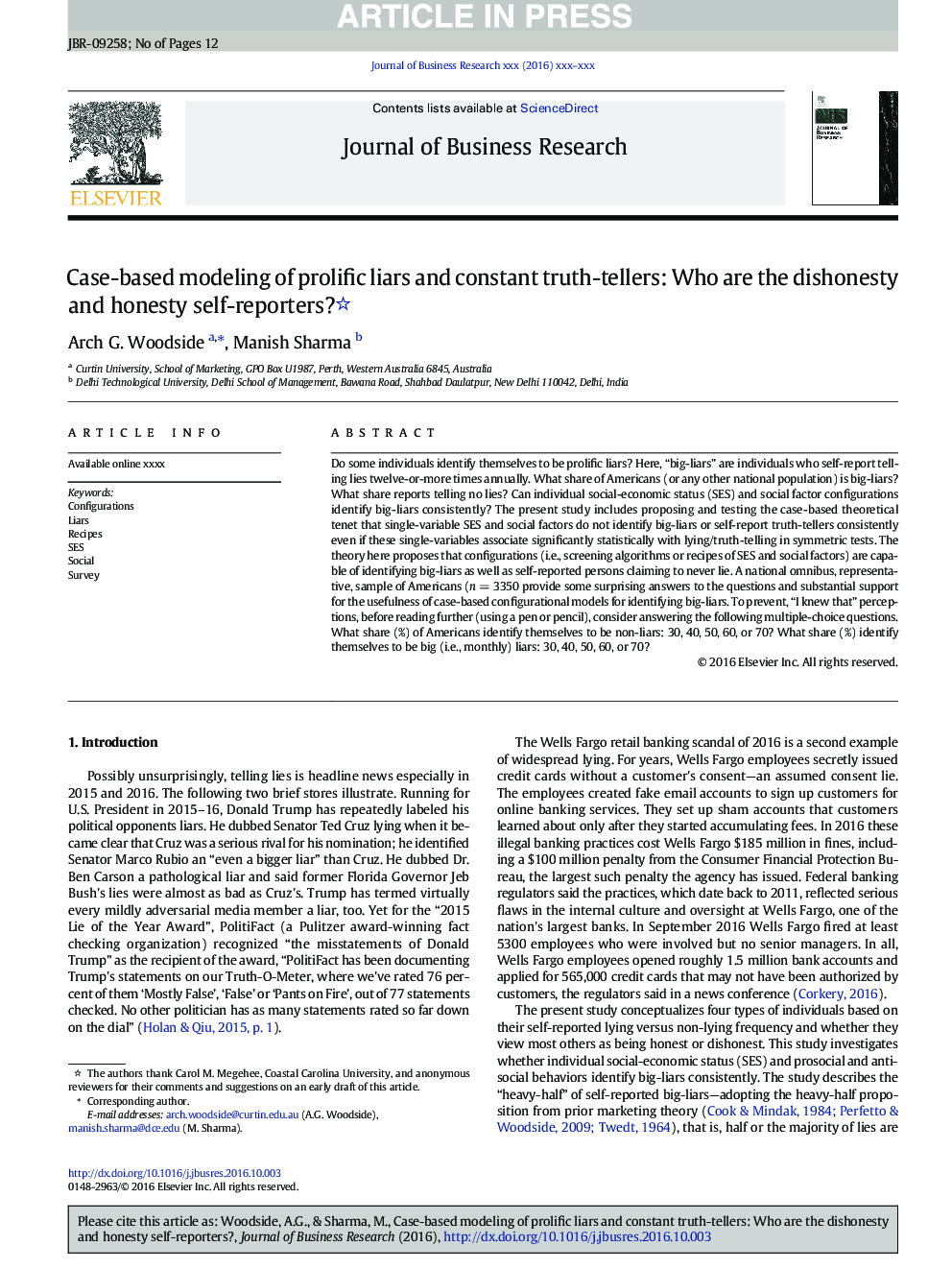| Article ID | Journal | Published Year | Pages | File Type |
|---|---|---|---|---|
| 5109616 | Journal of Business Research | 2017 | 12 Pages |
Abstract
Do some individuals identify themselves to be prolific liars? Here, “big-liars” are individuals who self-report telling lies twelve-or-more times annually. What share of Americans (or any other national population) is big-liars? What share reports telling no lies? Can individual social-economic status (SES) and social factor configurations identify big-liars consistently? The present study includes proposing and testing the case-based theoretical tenet that single-variable SES and social factors do not identify big-liars or self-report truth-tellers consistently even if these single-variables associate significantly statistically with lying/truth-telling in symmetric tests. The theory here proposes that configurations (i.e., screening algorithms or recipes of SES and social factors) are capable of identifying big-liars as well as self-reported persons claiming to never lie. A national omnibus, representative, sample of Americans (n = 3350 provide some surprising answers to the questions and substantial support for the usefulness of case-based configurational models for identifying big-liars. To prevent, “I knew that” perceptions, before reading further (using a pen or pencil), consider answering the following multiple-choice questions. What share (%) of Americans identify themselves to be non-liars: 30, 40, 50, 60, or 70? What share (%) identify themselves to be big (i.e., monthly) liars: 30, 40, 50, 60, or 70?
Keywords
Related Topics
Social Sciences and Humanities
Business, Management and Accounting
Business and International Management
Authors
Arch G. Woodside, Manish Sharma,
